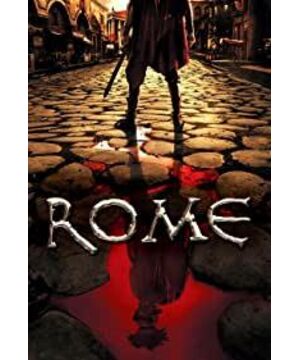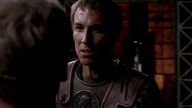1. Let me talk about appearance first. The actors selected in "Empire" feel closer to historical facts, such as Caesar's impressive Mediterranean head and Anthony's eyes. However, the so-called "historical facts" are also guessed based on the preserved statues and coins, and the accuracy is obviously compromised. The actors selected for "Rome" are more "like". The actors who played the four main characters of Caesar, Pompey, Anthony, and Octavian were very well performed, especially the young Octavian and Anthony who fled to Egypt.
As for the appearance or the deity, everyone has their own opinions. I personally appreciate the latter. After all, TV shows are not documentaries.
2. Characterization. The characters in "Empire" are too face-to-face, and no deep conflicts are unearthed at all. Octavian’s growth process was simplified into the "Lord of the Rings" routine. A naive little boy found himself and realized his ambitions in the process of displacement; coupled with the use of the unclear thread of the priestess to promote the development of the story, The plot will inevitably be flawed, and the conflict of values behind the political conflict of the dry cows is so inexplicably obliterated. "Rome" is relatively more successful in characterizing (of course, the two seasons of TV dramas have more room to play). Every big person has a humble and insignificant time, and every little person has a noble and sad side. Perhaps it has not been added. Less fictional creations, but more suitable for real characters.
3. Fictional characters. In both dramas, fictional characters are used as a thread to promote the development of the plot. "Empire" uses the gladiator Tyrannus, while "Rome" uses two warriors, the faithful (presumably vaguely Catuist) Vorenus and the loyal Pullo.
Tyrannus is relatively thin, mainly because his own "belief" is not clear. Apart from his instinctive love for his son, there seems to be no other ideals (of course this may be the true reflection of the gladiator) to protect Octavian only for Repaying Caesar (and eliminating guilt), following Anthony is just to escape, and finally repaying Caesar. Vorenus and pullo are very full, and they also involve deep love for the family, but deep love is filled with jealousy, hatred and final reconciliation.
In addition to this level, the confrontation between Vorenus in the early stage and Vorenus in the later stage can see the fragility and helplessness of the self in the face of changing destiny, the torment and transformation of belief in the face of cruel reality; and the confrontation between vorenus and pullo can also Shows the collision of two essentially different values.
This is the main reason why I prefer "Rome". "Empire" keeps pace with the times, it is a TV series with the main theme of the United States, justice defeats evil, good people defeated bad people; while "Rome" is more refined, it does not have strong judgments of pros and cons, but only shows the complexities forcefully. Sex-the complexity of characters, the complexity of politics, the complexity of value etc. This kind of display of complexity is my highest expectation for such so-called "historical" TV series.
View more about Rome reviews











